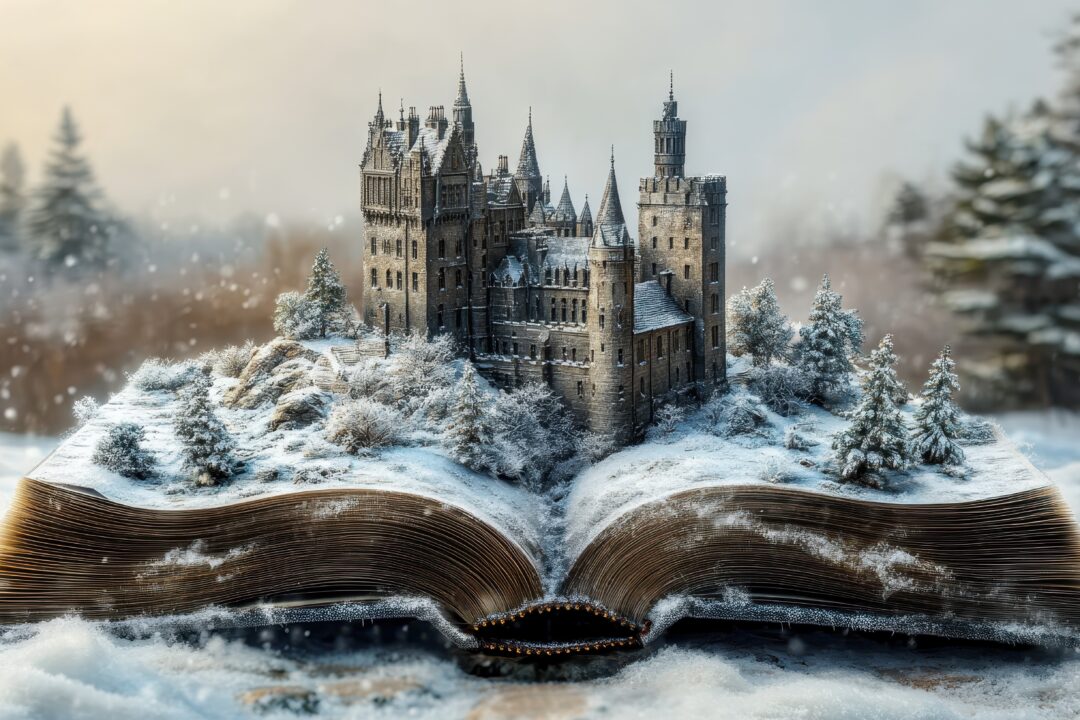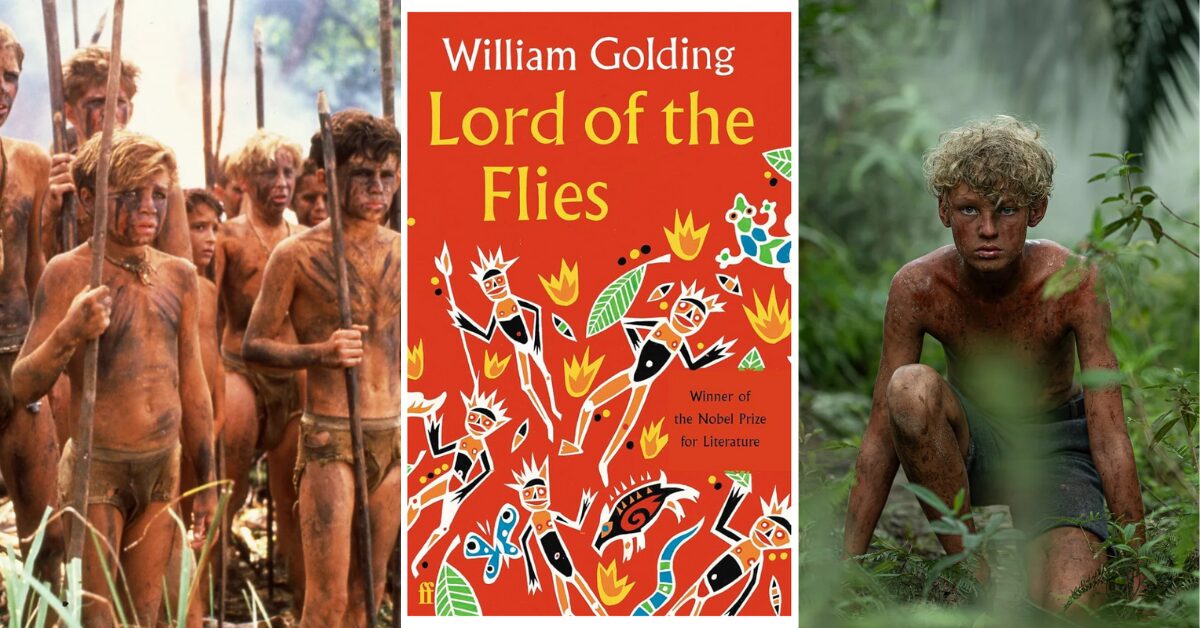Fantasy fiction opens the door to worlds where dragons soar and magic reigns supreme. From popular authors like George R.R. Martin’s intricate kingdoms to Neil Gaiman’s mythical landscapes, these narratives transport readers to lands beyond their wildest imagination.
Influential voices like Tomi Adeyemi and Marlon James continue to expand the boundaries of the genre, inviting a new generation to explore the depths of their creativity. Dive into these timeless stories and find your next read, a treasure that promises to whisk you away on an unforgettable journey.
Immersive Worlds and Legendary Adventures
Fantasy series like J.R.R. Tolkien’s The Lord of the Rings set the benchmark for epic storytelling, creating immersive worlds filled with legendary adventures and unforgettable characters.
1. The Lord of the Rings Series by J.R.R. Tolkien

The “Lord of the Rings” series stands as a pillar of the fantasy genre, a testament to Tolkien’s unparalleled world-building and linguistic skill, crafting a narrative that has captivated readers for generations.
• The Fellowship of the Ring
The first installment of this iconic fantasy series, “The Fellowship of the Ring,” introduces us to Middle-earth, a land of wonder and danger, where a hobbit’s quest sets the fate of the world in motion.
• The Two Towers
“The Two Towers” continues the journey of the Fellowship, now splintered, as they face the growing shadow of Mordor, each path fraught with peril and steeped in the rich lore of Middle-earth.
• The Return of the King
In “The Return of the King,” the future king must rise to claim his throne, as the final battle for Middle-earth looms, and the power of friendship and courage becomes the beacon of hope against darkness.
2. A Song of Ice and Fire Series by George R.R. Martin
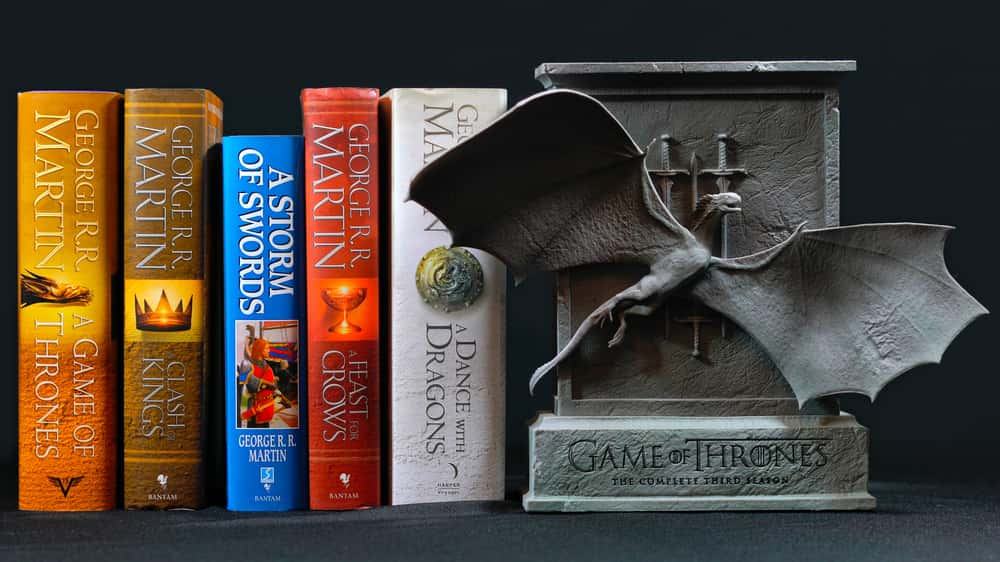
George R.R. Martin’s “A Song of Ice and Fire” series redefined fantasy with its complex characters and intricate political intrigue, earning a devoted following and spawning the hit television series “Game of Thrones.”
• A Game of Thrones – The Epic Beginning
The Game of Thrones books launch the epic fantasy of ice and fire, where noble houses clash for the Iron Throne and an ancient threat stirs beyond the Wall—setting the stage for a saga of power, betrayal, and survival.
3. Harry Potter Series by J.K. Rowling

The “Harry Potter” series by J.K. Rowling invites readers into a world where magic is real and adventure awaits at every turn, making it a cornerstone of modern fantasy literature.
• The Philosopher’s Stone – Where Magic Begins
“The Philosopher’s Stone” marks the beginning of the “Harry Potter” series, where young Harry discovers his wizarding heritage and attends Hogwarts, igniting a magical journey that has enchanted millions.
4. His Dark Materials Series by Philip Pullman
Philip Pullman’s “His Dark Materials” trilogy begins with “The Golden Compass,” a masterful narrative that deftly explores parallel universes and the complexities of human nature.
• Northern Lights – A Parallel Universe’s Tale
“Northern Lights” (known as “The Golden Compass” in the US) opens Philip Pullman’s groundbreaking series, taking readers on a thrilling adventure across parallel universes, questioning the very fabric of reality.
5. The Wheel of Time Series by Robert Jordan
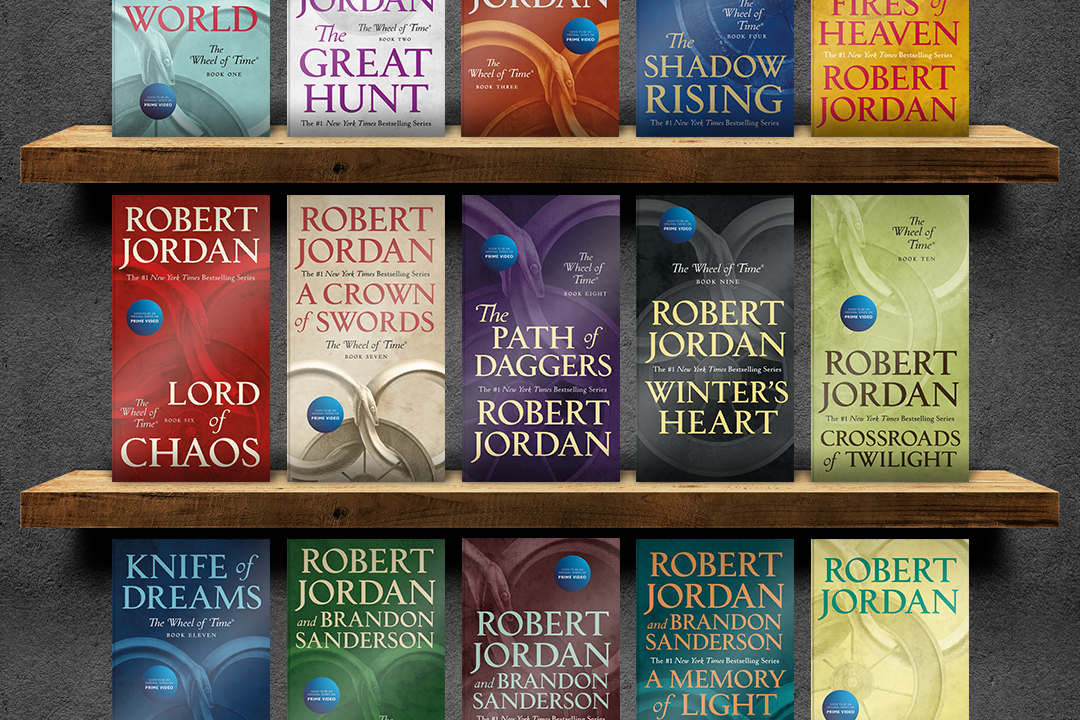
Robert Jordan’s “The Wheel of Time” series is a monumental work of fantasy, weaving a rich tapestry of destiny and power, where time itself is a wheel endlessly turning.
• The Eye of the World – An Intricate Fantasy Epic
“The Eye of the World” is the first step into Robert Jordan’s epic fantasy world, where the battle against the Dark One begins, and the Wheel of Time’s grand narrative starts to unfold, promising a journey as intricate as the Pattern itself.
Enchanting Standalone Novels in the Genre
Standalone novels offer a single, self-contained voyage into fantasy, like “The Princess Bride”, where the fourth wall is as malleable as the enchanting world it reveals.
6. The Night Circus by Erin Morgenstern – A Duel of Illusion

Erin Morgenstern’s “The Night Circus” enchants readers with its tale of a mysterious circus that appears without warning, open only at night. The narrative weaves a spellbinding duel between two young illusionists, each bound to compete in a magical contest they do not fully understand.
Reminiscent of the whimsical stories of Angela Carter, the novel captivates with its rich descriptions and a romance that unfolds amidst the black-and-white striped tents of the circus.
7. The Hobbit by J.R.R. Tolkien – The Classic Precursor

“The Hobbit” by J.R.R. Tolkien, often considered the hobbit and the lord of children’s literature, serves as a classic precursor to the epic fantasy genre. This tale of Bilbo Baggins, a hobbit who embarks on an unexpected adventure, is a cornerstone of fantasy, inspiring countless works including Tolkien’s own “The Lord of the Rings.”
The narrative’s simplicity and depth continue to charm readers, establishing it as a timeless masterpiece in the realm of fantasy books.
8. Watership Down by Richard Adams – An Animal Epic
Richard Adams’ “Watership Down” is an epic fantasy that transcends its anthropomorphic characters to explore complex themes of survival and leadership.
As a group of rabbits flee their doomed warren, their journey is imbued with mythology and heroism, echoing the grandeur of sagas like “The Chronicles of Thomas Covenant the Unbeliever” and “The Malazan Book of the Fallen.” This novel stands as a testament to Adams’ ability to craft a riveting tale in the vein of traditional epics.
9. Alice’s Adventures in Wonderland by Lewis Carroll – A Surreal Journey
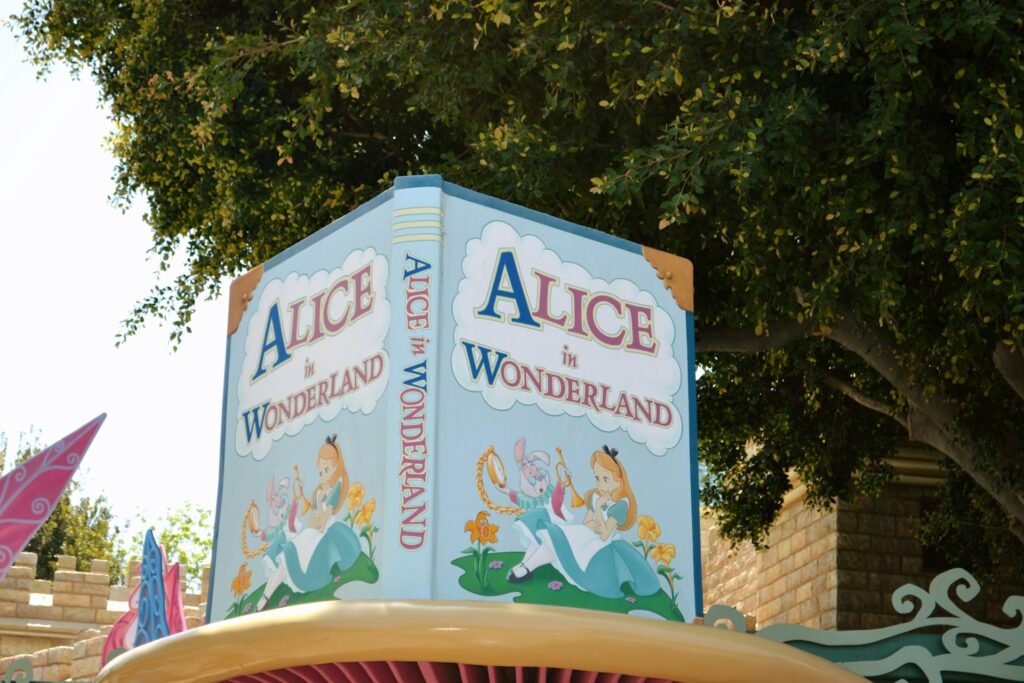
Lewis Carroll’s “Alice’s Adventures in Wonderland” invites readers into a world where logic is turned on its head and the impossible becomes possible. Alice’s surreal journey through a land of wonder challenges reality and defies conventional storytelling, much like the twisted narratives found in Neil Gaiman’s “American Gods.”
This hallmark of children’s literature has captivated audiences with its whimsical characters and fantastical plot, becoming an enduring favorite in the genre of fantasy books.
10. Circe by Madeline Miller – A Myth Retold
In “Circe,” Madeline Miller reimagines the story of the infamous sorceress from Greek mythology with a modern sensibility. The novel, with its rich narrative and profound character development, draws readers into the life of a goddess who transforms from an outcast into a powerful witch.
Its storytelling echoes the depth found in Tomi Adeyemi’s works and the mythic elements in Marlon James’ novels, making it a captivating addition to contemporary fantasy fiction.
Celebrated Fantasy Book Series
From the intricate lands of high fantasy to the gritty corners of urban settings, celebrated fantasy book series offer escapes into worlds unimaginable. They are the domains where traditional heroes embark on quests, and modern storytellers like Neil Gaiman weave tales of gods walking among us.
11. Earthsea Series by Ursula K. Le Guin
The Earthsea Series by Ursula K. Le Guin is a cornerstone of traditional fantasy, where the Earthsea Cycle’s archipelago becomes a canvas for tales of magic, self-discovery, and balance. Le Guin’s Earthsea novels have shaped the genre with their profound themes and pioneering spirit.
• A Wizard of Earthsea – The Coming of Age of a Young Wizard
“A Wizard of Earthsea” marks the beginning of Ursula K. Le Guin’s Earthsea Cycle, narrating the coming of age of a young wizard named Ged. The story traces his journey from reckless youth to a figure of great power and wisdom.
Le Guin crafts a world as deep and vast as the oceans surrounding Earthsea’s islands, exploring the equilibrium between light and dark, a theme that resonates throughout the traditional fantasy genre.
12. The Stormlight Archive by Brandon Sanderson

Brandon Sanderson’s “The Stormlight Archive” is a beacon of modern epic fantasy, renowned for its intricate world-building and complex magic systems.
• The Way of Kings – High Fantasy Meets Epic World-Building
“The Way of Kings,” the first book in “The Stormlight Archive,” sets the stage for a saga of immense scope. Sanderson weaves together the lives of diverse characters in a world beset by apocalyptic storms and ancient conflicts.
With the same meticulous detail found in the “Icewind Dale” trilogy, Sanderson crafts a narrative that is as grandiose as it is intimate, inviting readers into a realm where every gust of wind carries the weight of history.
13. Mistborn Series by Brandon Sanderson

Brandon Sanderson’s “Mistborn Series” stands out as a paragon of modern fantasy, blending political intrigue with a unique magical system.
• The Final Empire – A Revolution in a Magic-Ridden World
“The Final Empire,” the first installment of the Mistborn Series, thrusts readers into a world where the ash falls from the sky and mist dominates the night. In this magic-ridden world, Brandon Sanderson tells the story of a revolution led by an unlikely heroine and her band of misfits. Check out other timeless book series by Brandon Sanderson.
The narrative, rich with political and social commentary, is a testament to the transformative power of fantasy stories to reflect and challenge our own realities.
14. The Kingkiller Chronicle by Patrick Rothfuss
Patrick Rothfuss’ “The Kingkiller Chronicles” is a masterpiece that redefines the boundaries between myth, music, and memory.
• The Name of the Wind – A Bard’s Tale
“The Name of the Wind,” the first book of “The Kingkiller Chronicle,” tells the story of Kvothe, a gifted young man who grows to be the most notorious wizard his world has ever seen.
Patrick Rothfuss weaves a narrative that combines the lyrical elegance of a bard’s tale with the depth of a scholar’s reflection. It’s a story that immerses readers in a world as rich and real as any other in the annals of fantasy literature.
15. The Broken Earth Trilogy by N.K. Jemisin
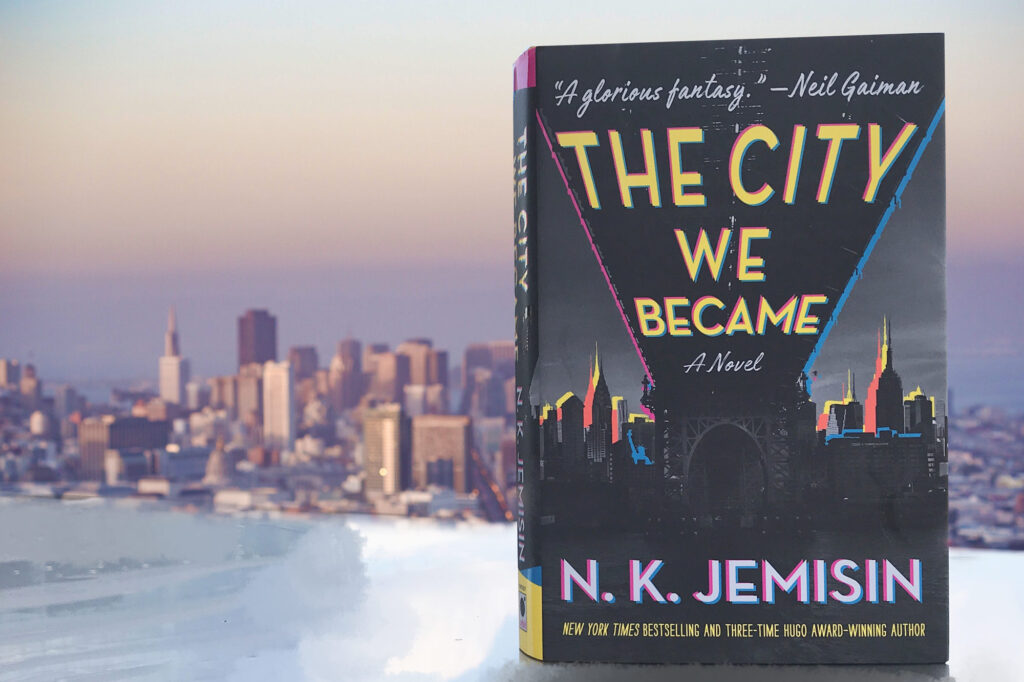
N.K. Jemisin’s “The Broken Earth Trilogy” tells the story of a world where cataclysmic events are as common as the rising and setting of the sun.
• The Fifth Season – An Apocalyptic Fantasy
In “The Fifth Season,” N.K. Jemisin introduces readers to a world where apocalyptic events occur with terrifying regularity. The Stillness, a supercontinent, faces its end, as a woman seeks her daughter amidst the chaos.
Jemisin’s narrative weaves together complex characters and a unique magic system based on geology, creating a groundbreaking story that defies the norms of traditional fantasy.
• Hidden Gems and Underrated Classics
Exploring the shelves of fantasy, one discovers hidden gems and underrated classics that captivate the imagination, often overlooked amidst the genre’s titans. These narratives offer unique voices and inventive worlds that deserve their moment in the spotlight.
16. The Last Unicorn by Peter S. Beagle – A Timeless Fairy Tale
Peter S. Beagle’s “The Last Unicorn” is a hauntingly beautiful fairy tale that transcends age, narrating the journey of a unicorn who believes she is the last of her kind.
On a quest to find others, she encounters a varied cast of characters, both whimsical and malevolent. The timeless nature of this novel has cemented its place as a classic in the fantasy genre.
17. Tigana by Guy Gavriel Kay – A Tale of Conquered Lands
“Tigana” by Guy Gavriel Kay is a poignant tale of memory and identity, set in a land cursed to be forgotten. The conquered people of Tigana fight against oppressive sorcerers to reclaim their lost history. This standalone novel is celebrated for its intricate world-building and the emotional depth of its characters, making it a must-read for fantasy enthusiasts.
18. The Lies of Locke Lamora by Scott Lynch – A Tale of a Clever Con Artist
Scott Lynch’s “The Lies of Locke Lamora” introduces readers to the cunning con artist Locke and his band of thieves, the Gentlemen Bastards. Set in the Venice-like city of Camorr, the novel combines heist elements with a dark fantasy setting, offering a gritty, fast-paced adventure full of wit and elaborate scams that keep readers on the edge of their seats.
19. The Priory of the Orange Tree by Samantha Shannon – Dragons and Destiny
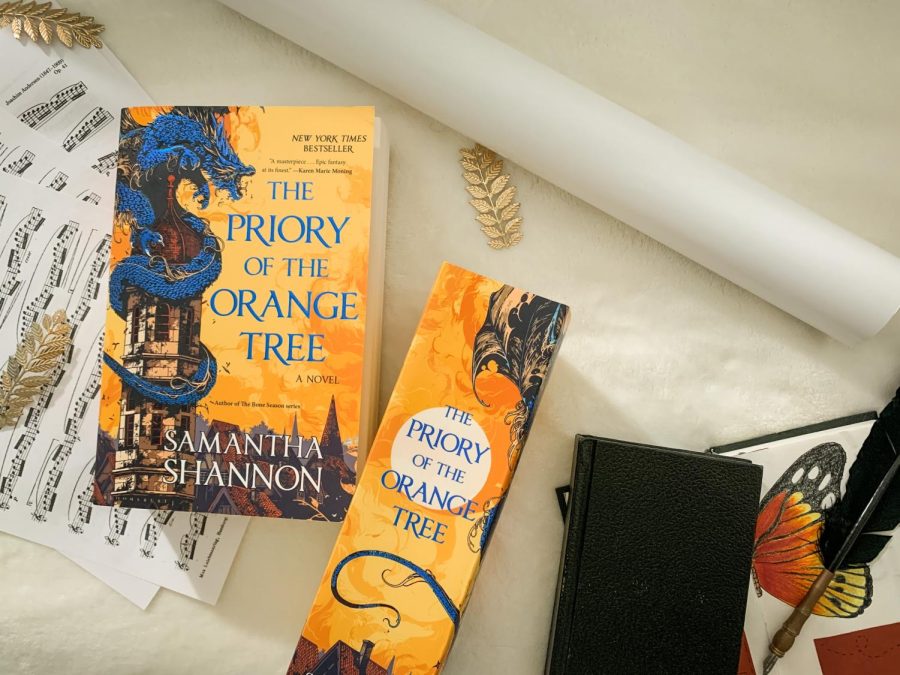
“The Priory of the Orange Tree” by Samantha Shannon unfolds an epic tale of dragons, destiny, and a world on the brink of war. This standalone novel is praised for its feminist twist on classic fantasy tropes, inclusive representation, and a complex plot that weaves together the fates of kingdoms, mages, and dragons in a breathtaking narrative.
20. The Goblin Emperor by Katherine Addison – Intrigue in the Elflands
Katherine Addison’s “The Goblin Emperor” is a tale of political intrigue and personal discovery. Maia, a half-goblin, unexpectedly ascends to the throne after a tragic accident.
Thrust into a court teeming with prejudice and schemes, Maia must navigate his newfound role while remaining true to his compassionate nature. This novel’s exploration of power and identity makes it a standout in the genre.
Modern Fantasies Worth Reading
The landscape of modern fantasy brims with fresh tales that challenge conventions, offering readers a chance to explore new worlds and confront dark realities through the lens of the fantastical.
21. The Poppy War by R.F. Kuang – A Grimdark Fantasy
“The Poppy War” by R.F. Kuang plunges readers into a grimdark fantasy inspired by 20th-century China. The novel follows Rin, an orphan who aces a national exam and is thrust into an elite military academy, where she discovers her affinity for shamanism. Kuang’s debut is a powerful examination of war, gods, and the monstrous capabilities of mankind.
22. Ninth House by Leigh Bardugo – Occult Magic in Modern Times

Leigh Bardugo’s “Ninth House” explores the supernatural underbelly of Yale University, where secret societies dabble in dangerous magic. Alex Stern, a young woman with a troubled past and an improbable gift, is charged with monitoring these occult activities. This urban fantasy book is a gripping mix of mystery, dark academia, and the paranormal, perfect for fans looking for magic in the modern age.
23. The Rage of Dragons by Evan Winter – A Vengeful Warrior’s Saga
Evan Winter’s “The Rage of Dragons” is a thrilling epic fantasy set in a world where one’s caste determines their fate. Tau, a young warrior from the lowest caste, embarks on a path of vengeance and glory, challenging societal norms. Winter crafts an intense story of battle, betrayal, and the unyielding rage of dragons that fuels Tau’s quest for power and justice.
24. The Golem and the Djinni by Helene Wecker – Cross-Cultural Mythology
Helene Wecker’s “The Golem and the Djinni” is a mesmerizing blend of Jewish and Middle Eastern mythologies. In 1899 New York, two supernatural beings — a golem and a djinni — form an unlikely friendship as they navigate the human world. This novel’s exploration of cultural identity and the immigrant experience is woven into a magical narrative of self-discovery.
25. The Bear and the Nightingale by Katherine Arden – A Russian Folklore-Inspired Novel

Katherine Arden’s “The Bear and the Nightingale” brings to life the frosty landscapes of medieval Russia, where folktales are more than mere stories. Vasilisa, a young girl with extraordinary gifts, must confront both mortal and otherworldly forces to save her family and village. Arden’s lyrical prose and rich world-building invite readers into a realm of magic and myth.
Fantasy Books That Redefined the Genre
Fantasy literature has been profoundly shaped by works that broke new ground, redefining the genre with innovative storytelling, complex characters, and intricate worlds that continue to inspire and captivate.
26. A Wizard of Earthsea by Ursula K. Le Guin – The Birth of a Wizard
Ursula K. Le Guin’s “A Wizard of Earthsea” introduces Ged, a boy with innate magical talent who grows into his role as a wizard. Set in the archipelago of Earthsea, the novel explores themes of power, responsibility, and redemption.
Le Guin’s elegant prose and deep philosophical insight have established this work as a cornerstone of fantasy literature, influencing countless authors and readers alike.
27. The Chronicles of Narnia by C.S. Lewis – The Magical Wardrobe and Beyond
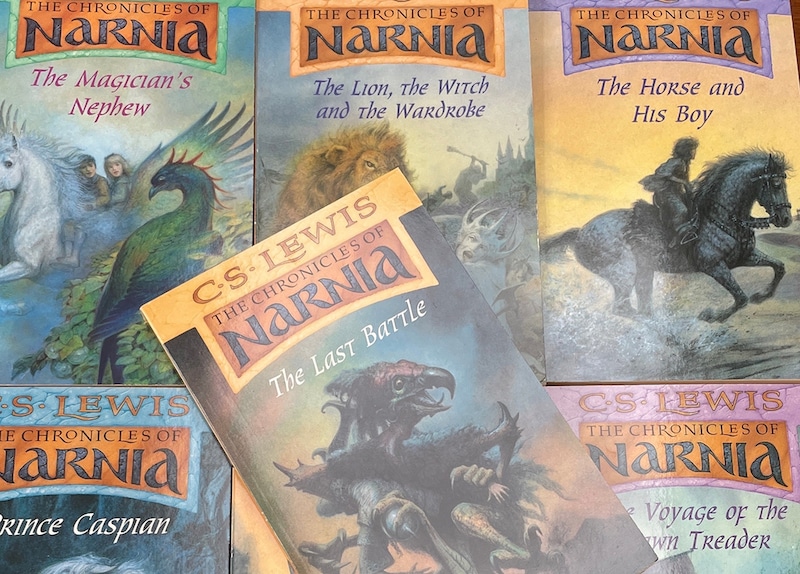
Embarking on an adventure through the wardrobe, young readers are swept into the fantastical world of Narnia. The Chronicles of Narnia series, penned by C.S. Lewis, captivates with their rich allegories and timeless battles between good and evil.
Across the seven books, children encounter noble lions, deceptive witches, and a wardrobe that serves as the gateway to wonders, making it a staple of literary enchantment for generations.
• The Lion, the Witch and the Wardrobe – The Adventure Begins
The journey starts with “The Lion, the Witch and the Wardrobe,” where siblings Peter, Susan, Edmund, and Lucy Pevensie discover the world hidden within an old wardrobe. As they navigate the wintry landscape ruled by the White Witch, their courage is tested.
But with the help of Aslan, the noble lion, they embark on a quest to reclaim Narnia and fulfill their destinies as its kings and queens. This opening tale sets the stage for an epic saga of faith, hope, and perseverance.
28. Dune by Frank Herbert – A Sci-Fi Fantasy Blend

The Dune series, Frank Herbert’s magnum opus, stands at the crossroads of science fiction and fantasy, presenting a universe where politics, religion, and ecology intertwine. On the desert planet of Arrakis, also known as Dune, the story of Paul Atreides unfolds—a narrative rich with mysticism and the struggle for control of the life-extending spice, melange. Herbert’s intricate world-building and complex characters have earned “Dune” its place as a cornerstone of speculative fiction.
29. The Once and Future King by T.H. White – The Arthurian Legend Revisited
In “The Once and Future King,” T.H. White breathes new life into the Arthurian legends, weaving a tapestry of magic, chivalry, and morality. This novel revisits the epic tales of King Arthur, from his tutelage under Merlin to the rise and fall of Camelot.
White’s reinterpretation of these timeless stories challenges readers to reflect on the nature of power and the complexity of human virtue, cementing its status as an enduring classic.
30. Jonathan Strange & Mr Norrell by Susanna Clarke – Magic in the Napoleonic Wars
Susanna Clarke’s “Jonathan Strange & Mr Norrell” revives English magic in an alternative 19th-century style during the Napoleonic Wars. The rivalry and partnership between the reclusive Mr Norrell and the daring Jonathan Strange drive a narrative rich with enchantment and folly.
This novel, while not penned by Terry Pratchett, shares a kinship with his works through its blend of historical detail, dry wit, and the fantastical, earning its place among modern fantasy masterpieces.
Young Adult Fantasy That Captivates
Young adult fantasy novels not only kindle the imaginations of their readers but also grapple with themes of identity, friendship, and resilience. These stories often feature protagonists on the cusp of adulthood, facing challenges that mirror the real-world issues their readers confront.
31. The Hunger Games by Suzanne Collins – A Dystopian Challenge

In the shadow of a dystopian society, “The Hunger Games” by Suzanne Collins pits the resourceful Katniss Everdeen against the cruel Capitol. The series, which has been likened to a brutal “Game of Thrones,” forces its characters into a televised battle for survival. Collins’ narrative explores the cost of oppression and the power of hope, making it a provocative and gripping addition to the young adult genre.
32. Shadow and Bone Trilogy by Leigh Bardugo – Darkness and Light

Leigh Bardugo’s “Shadow and Bone Trilogy” delves into a war-torn world shrouded in darkness, where the fate of the nation rests on the shoulders of Alina Starkov, a soldier who discovers a power that could be the key to salvation.
Bardugo’s expertise in crafting a narrative that blurs the lines between science fiction and fantasy establishes her as a luminary in young adult literature, captivating readers with her balance of darkness and light.
33. Percy Jackson & The Olympians by Rick Riordan – Mythology Meets Modern Day
Rick Riordan’s “Percy Jackson & The Olympians” series marries ancient mythology with the modern world, as young demigod Percy Jackson discovers his heritage and embarks on quests that mirror the heroic epics of old.
With a fresh, humorous take on Greek gods and monsters, Riordan creates a bridge between past and present, offering an accessible entry point into mythology for young readers.
34. The Golden Compass by Philip Pullman – A Young Girl’s Epic Quest
“The Golden Compass,” the first book in Philip Pullman’s “His Dark Materials” series, introduces Lyra Belacqua, a plucky heroine on a quest that spans parallel universes.
Pullman’s richly imagined world, where souls manifest as animal companions called daemons, challenges societal norms and questions the nature of consciousness. This epic narrative deftly combines adventure with philosophical inquiry, securing its place as a thought-provoking work for young adults.
35. The Graveyard Book by Neil Gaiman – Life Among the Dead
Neil Gaiman’s “The Graveyard Book” tells the unique story of Nobody “Bod” Owens, a boy raised by the spectral inhabitants of a graveyard. Gaiman weaves a macabre yet heartwarming tale that explores themes of life, death, and belonging.
With its memorable characters and Gothic charm, this novel stands as a testament to Gaiman’s mastery of blending the eerie with the endearing in a narrative that resonates with readers of all ages.
Epic Fantasy Worlds for the Ages
Epic fantasy worlds offer readers an escape into realms of limitless imagination, where the classic struggle between good and evil unfolds on a grand scale. These stories are timeless, drawing on the rich tapestry of human experience to create universes that are both wildly original and deeply familiar.
36. The Malazan Book of the Fallen by Steven Erikson – A Vast Epic
Steven Erikson’s “The Malazan Book of the Fallen” series is a triumph of epic fantasy, a sprawling tapestry woven with a vast array of characters, cultures, and gods.
Each novel in the series expands the intricate history of the Malazan Empire and the numerous races and factions within it, showcasing Erikson’s skill in crafting complex narratives and evocative world-building that rivals the depth and scale of ancient epics.
37. The Black Company by Glen Cook – Mercenaries and Sorcery
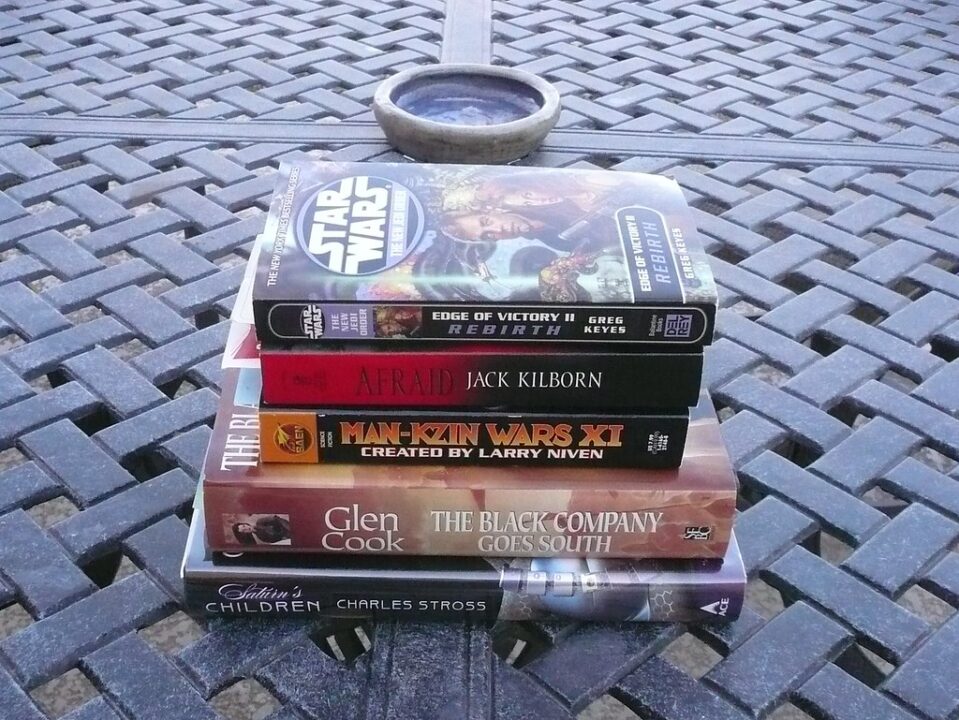
“The Black Company” series by Glen Cook redefines the fantasy genre with its gritty depiction of a band of mercenaries caught up in a war between powerful sorcerers.
Told from the perspective of the company’s physician, Croaker, these novels blend dark realism with the supernatural, offering a stark contrast to the traditional tales of heroic knights and noble quests. Cook’s work is a seminal influence on the subgenre of military fantasy.
38. The Farseer Trilogy by Robin Hobb – The Assassin’s Apprentice Emerges
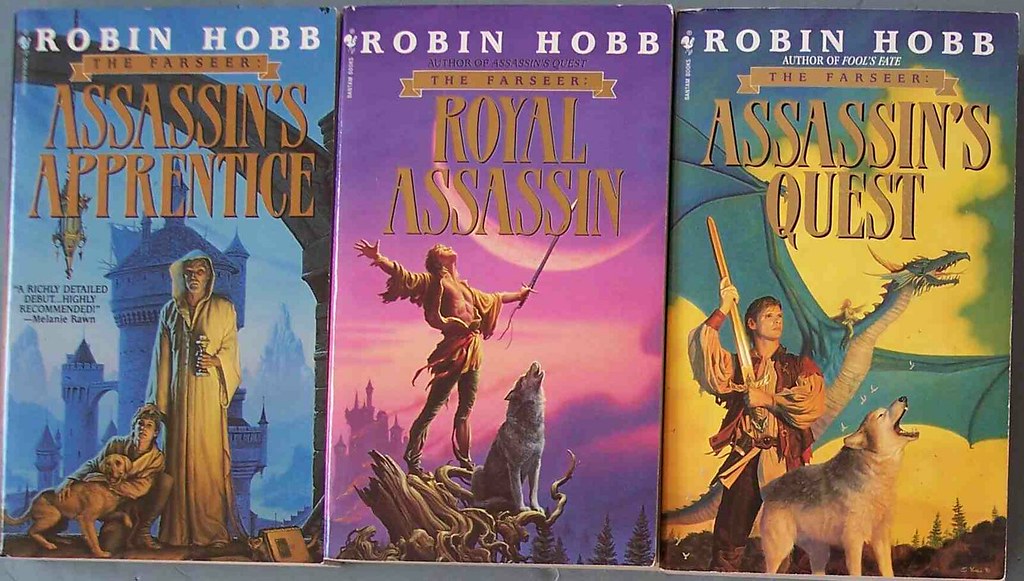
Robin Hobb’s “The Farseer Trilogy” follows the life of FitzChivalry Farseer, a royal bastard turned assassin’s apprentice. Hobb’s intricate storytelling delves into the psychological depth of its protagonist, whose journey is fraught with betrayal, loyalty, and a touch of the mystical. The vividly realized world and the complex relationships within it have cemented the trilogy as a beloved staple in the fantasy pantheon.
39. The Dark Tower by Stephen King – A Gunslinger’s Quest
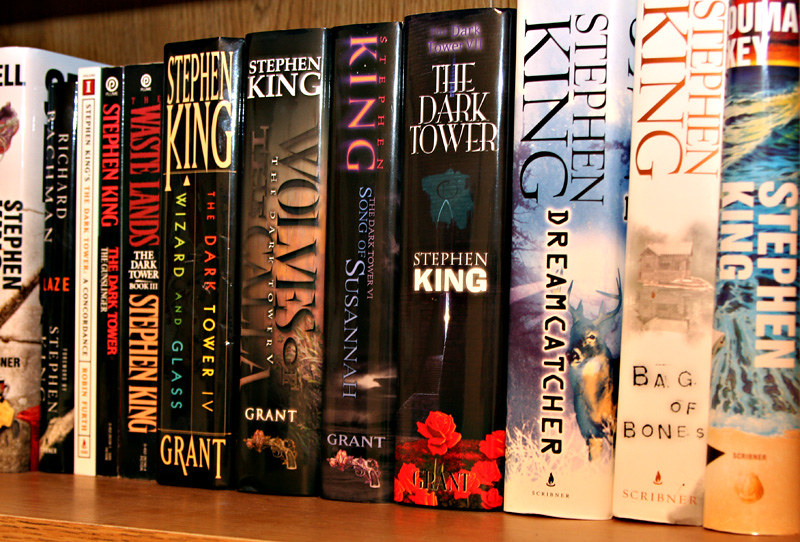
Spanning across eight sprawling books in the series, Stephen King’s “The Dark Tower” is an ambitious blend of fantasy, horror, and Western motifs. It follows the journey of Roland Deschain, a stoic gunslinger, as he pursues the mysterious Dark Tower.
King weaves a complex narrative that challenges the boundaries of genre, creating a story that resonates with the epic quests of yore while infusing it with his unique vision. If you’d like to discover more of his masterpieces, check out the full guide to Stephen King best books.
40. Elric of Melniboné by Michael Moorcock – The Doomed Emperor
Michael Moorcock’s “Elric of Melniboné” introduces readers to a tragic hero unlike any other. Elric, the albino emperor of a decaying kingdom, wields the soul-drinking sword Stormbringer.
The novels follow his tormented existence and the moral complexities he faces. Moorcock’s creation stands as a hallmark of the sword and sorcery subgenre, offering a poignant narrative about fate, power, and personal struggle.
The Art of Fantasy Storytelling
Fantasy storytelling is an art that requires a delicate balance of imagination and relatability. Authors like Susan Cooper and J.R.R. Tolkien craft narratives that transport readers to realms that, while entirely fabricated, feel as real as the world outside their windows. This connection is achieved through vivid world-building, compelling character arcs, and themes that reflect our deepest human experiences.
How Authors Build Entire Worlds from Scratch
The creation of a fantasy realm is akin to constructing a universe from the void. Authors begin with the foundation, setting the laws of magic and nature, and populating it with diverse creatures, cultures, and histories.
Meticulous details, from the architecture of a city to the dialects of its people, are woven together to give life to an immersive world that readers can fully inhabit. Each book in the series adds layers to this foundation, expanding the geography and deepening the lore.
As the narrative unfolds, these worlds become characters in their own right, their intricacies and secrets pivotal to the plot and the protagonist’s journey. The reader’s understanding of these realms grows with each chapter, making the experience of discovery one of the genre’s greatest pleasures.
The Role of Myth and Folklore in Fantasy Literature
Myth and folklore serve as the bedrock of fantasy literature, providing a timeless lexicon of symbols and narratives that authors draw upon. These ancient tales offer a shared human heritage that can be reinterpreted and woven into new stories.
By tapping into these universal motifs, fantasy literature connects with readers on a primal level, invoking wonder, caution, and wisdom. Whether it’s the classic hero’s journey or the cautionary fables of magical hubris, fantasy authors like Neil Gaiman and Marlon James use these elements to create resonance within their tales.
They borrow from a wealth of global traditions, blending them in innovative ways that pay homage to the past while crafting something entirely original and relevant to contemporary readers.
Character Development and the Hero’s Journey in Fantasy
At the heart of many fantasy narratives is the hero’s journey, a transformative path that takes characters from the mundane to the extraordinary. This archetypal voyage is not just a physical one; it is an evolution of the soul.
As characters face trials and tribulations, they grow, revealing strengths and flaws that make them relatable and endearing to readers. Character development in fantasy goes beyond the protagonist. It encompasses a diverse cast, each with their own arcs that often intersect with the main narrative.
These interactions create a rich tapestry of human experience, reflecting the complex nature of our own lives and relationships, and allowing readers to see parts of themselves in the characters they follow.
The Enchantment Concludes
From the timeless power of Gavriel Kay’s prose to the epic tales of Stephen King, this journey through the best fantasy books has unveiled worlds beyond imagination. For both seasoned enthusiasts and newcomers eager to find their next read, this collection is a testament to the enchanting allure of fantasy literature.
Whether seeking holiday reads, following book reviews, or participating in book events, readers can revel in the narratives that defy the mundane. Those who enjoy exploring other iconic universes can also check out the best Star Wars books for more thrilling adventures among the stars.
In the end, the best fantasy books not only provide escape but also reflect the full spectrum of human experience within their magical bounds.

